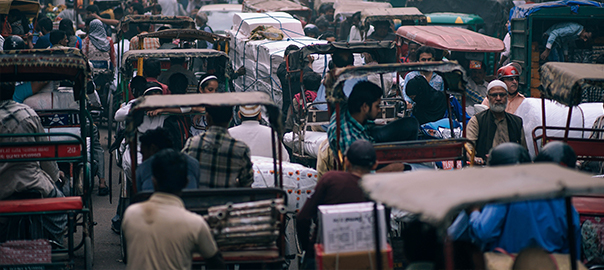The first time I watched the movie Lion, I was sitting on a plane between my two kids, on our way from India to the U.S. I was utterly drawn in, recognizing in so many scenes the world I was just leaving: the crowded, lively streets; the dhabas (food stands) with their deep-fried goodies; the familiar accents and casual head bobbing. The story is about a small, poor boy, Saroo, who gets separated from his family, and, not knowing his last name or the village he is from, is unable to find his way back. After many days on his own in a foreign city where no one understands his language, he ends up in an orphanage and is later adopted by an Australian family.
I loved, in a way that broke my heart, seeing India through the eyes of a 6 year old who no one cares about. Even though he is desperate, even though he is asking for help, the adults around him ignore and disregard him, even hit him and push him away in their annoyance. It’s true: we so often see small children on their own in India, we rarely even wonder about them anymore.
If you have seen the movie, you might still be haunted by the orphanage scene.
It is shown as a dark place with countless beds in a big room, large iron gates, despondent and neglected children. At night one of the boys—frightened, kicking and wailing—is given to some men with the agreement that they would bring him back in the morning as usual.
Of course not all orphanages can be described like this in today’s India, but in many government institutions and unregistered homes the reality is disheartening. According to the findings of human rights groups, there is rampant abuse in many children’s homes here: neglect, physical and emotional abuse and rape by staff, caretakers, guards, cooks, and even older peers.
Many of the children in India who end up in orphanages do actually have parents or extended families. Plenty of newborn baby girls are abandoned at the hospital or elsewhere because of their gender. Other children are left because their families have no money to feed and clothe them. Technically they should not be called orphans, but what do you call children who do not have parents and families around to look after them?
As I was sitting on the airplane finishing the movie—my kids tugging me from each side, asking for snacks and wanting to go to the bathroom—I tried blowing my nose as quietly as possible and hiding my tears from the flight attendants. My heart was aching for the kids who grow up orphaned, having to fend for and protect themselves and to figure out how to navigate life without parents, relatives, or healthy communities.
Reflecting on how to raise prayer for orphans and how to motivate and remind myself to pray as well, I arrived back at God’s heart, picturing the kids I see on Delhi’s streets. He hears the cries of the fatherless, He defends them (Psalm 10:18, Exodus 22:22), sustains them (Psalm 146 :9), and is a Father to them (Psalm 68:5). He cares for them and asks His people to do the same, to reflect His heart. The main way He cares for the orphans and the fatherless is through us, believers. Because we have been loved by this heavenly Father and taken into His family, we are compelled to share His love with others.
Looking at it on a different level, at our church we have been talking a lot about “orphan mentality” in the last year. It doesn’t have anything to do with our parents; it’s about living in the world and facing its challenges as ifwe were alone, abandoned, rejected, on our own. It is about walking through the day not as if we were children of the King, unconditionally loved and fully accepted by a Father who knows and can fill all our needs, but as if we were left to our own devices to survive. Not as if we belonged to a God who fights for us, but as if we had to battle alone with no help available. We are not meant to live this way. He who cares for the physically orphaned also cares for the spiritually orphan, through His love, through His people.
So let’s pray for the orphans, the fatherless, and the abandoned who need to fend for themselves and protect themselves and find their way in the world; for children with no families to love on them and care for them; for those in orphanages, better ones and worse ones; for kids on the street taken advantage of, ignored, or forgotten. Let’s pray for the church to walk in the way God has set for us, loving and serving the orphan and fatherless sacrificially. And let’s pray for all the saints to live in our powerful identity as children of God, fully cherished and never abandoned.



Leave A Comment